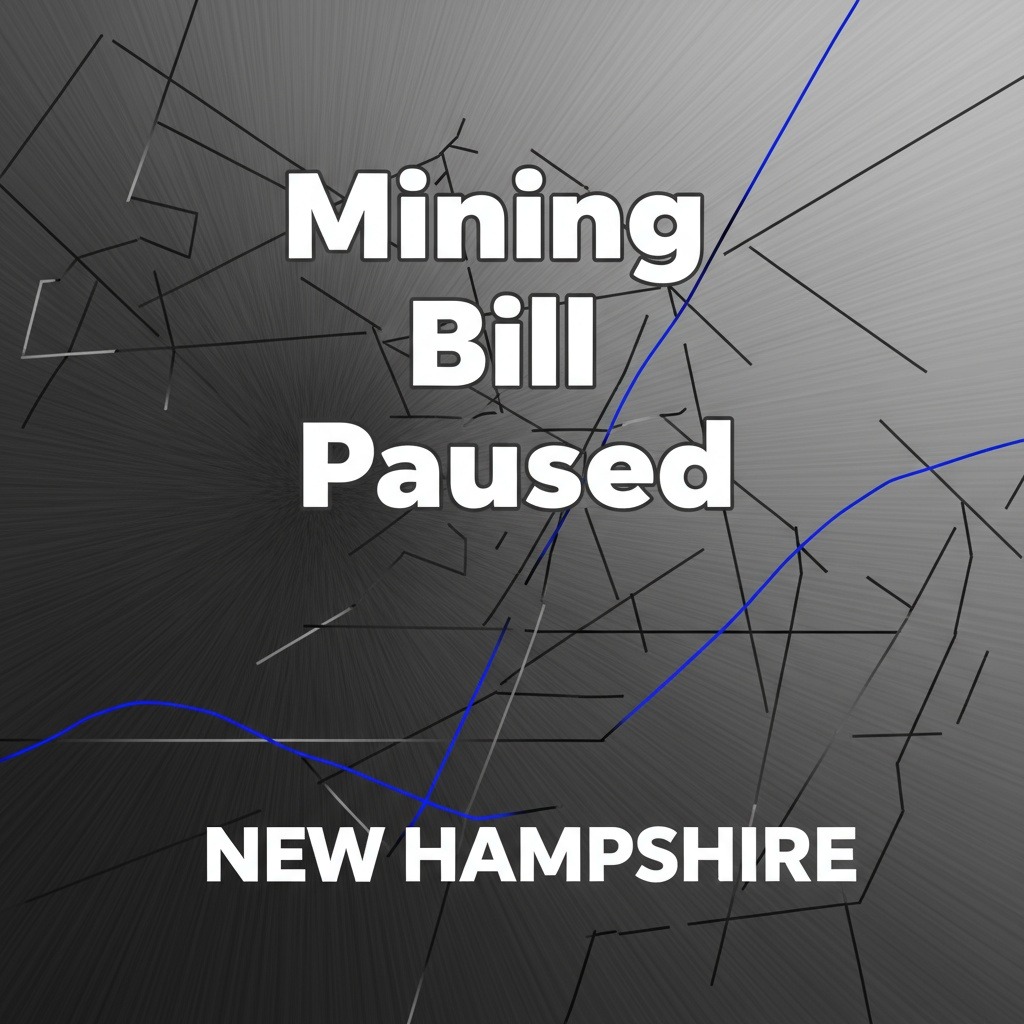The New Hampshire Senate Commerce Committee has postponed consideration of a bill designed to ease regulations on cryptocurrency mining, following a surge in public feedback expressing concerns over the measure. The committee’s vote on Thursday resulted in a 4–2 decision to send the proposal for further examination during an interim study period.
House Bill 639 aims to restrict municipalities from imposing local regulations on crypto mining operations, including rules related to electricity consumption and noise levels. Additionally, the bill seeks to prohibit both state and local governments from levying taxes specifically targeting digital asset activities. If enacted, it would affirm the right for individuals and businesses to engage in cryptocurrency mining freely within the state.
One notable feature of the bill is the proposal to establish a dedicated blockchain docket within New Hampshire’s superior court system. This specialized court would handle disputes related to cryptocurrencies, presided over by a judge appointed by the governor.
The legislation, sponsored by Republican Representative Keith Ammon, previously underwent a vote in May, after which it was sent back to committee for language refinement and efforts to build wider support. The bill is expected to be brought before the full Senate in 2026.
During Thursday’s session, Senator Tara Reardon of Concord remarked that this bill generated the highest volume of constituent emails she has ever received on a single piece of legislation, indicating significant public interest and concern.
Background on Crypto Mining Regulation and Energy Use
Crypto mining involves using computational resources to validate transactions on proof-of-work blockchains such as Bitcoin. Miners are rewarded with newly minted coins for their efforts. However, the industry has faced criticism for its substantial energy consumption and environmental footprint.
In response to these concerns, the sector has shown progress in adopting cleaner energy sources. A recent report from the MiCA Crypto Alliance and data analytics firm Nodiens highlighted that coal’s share in Bitcoin mining decreased from 63% in 2011 to 20% in 2024. Meanwhile, the use of renewable energy in crypto mining has grown steadily, increasing approximately 5.8% each year on average.
Despite these improvements, some U.S. states are implementing measures to address the high energy demand of crypto mining. For example, on October 2, New York State Senator Liz Krueger introduced legislation proposing a tiered excise tax on electricity consumed by mining operations. The plan exempts miners using up to 2.25 million kilowatt-hours (kWh) annually, applies a 2-cent per kWh tax on consumption between 2.26 million and 5 million kWh, and includes higher tiers for greater usage.
New Hampshire’s ongoing debate reflects the broader national conversation on balancing the benefits of cryptocurrency innovation with environmental and regulatory concerns.



